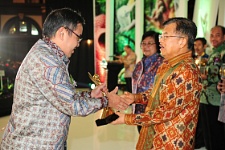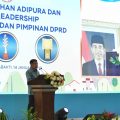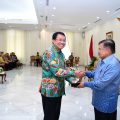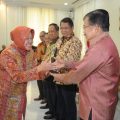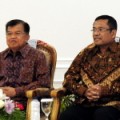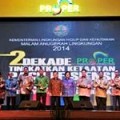Jakarta. Adipura awards for cities and the Environmental Performance Rating Program (PROPER) awards for companies, granted annually by the Forestry and Environment Ministry, are used as stick and carrots to encourage Indonesian cities and regions to be clean and green.
“When you get the awards, it means that you are committed to improve the cleanliness and the sanitation in your area, better than before,” said Vice President Jusuf Kalla when delivering his remarks in the Bestowal Ceremony of Environment Awards at Bidakara Hotel, tonight.
Mr Kalla further asked local leaders attending the event to shift their paradigm of health from curative efforts to preventive ones, that is by keep making their environment clean and in order.
“Do not be proud of having big hospitals full of patients as they are signs of unhealthy environment,” he said.
He continued that communities together with local governments should be actively involved and make innovations for the sake of good environment.
Besides, he added, other than categories of the cleanest cities, there should also be categories of the dirtiest citiest.
“This is not meant to disgrace those dirty cities but to encourage them to work hard to make them cleaner and greener,” argued Mr Kalla.
At the event, the Vice President awarded the Adipura Kencana to three cleanest cities, namely Surabaya for metropolitan city category, Balikpapan for medium city category, and Kendari for small city category.
In her remarks delivered before the Vice President took to the stage, Forestry and Environment Minister Siti Nurbaya reported that PROPER participants this year amounted to 2,137 companies from 113 types of industry. “From the best to the worst in the environment managment, 12 companies are categorized as Gold, 108 companies are Green, 1,406 companies are Blue, 529 companies are Red, 21 companies are Black, and the remaining 61 companies are not announced,” said the minister.
She added that the criteria for companies to get the PROPER awards involve environmental permits, water waste management, air pollution management, hazardous waste management, and the least destruction to the land (for mining industries).
“PROPER is aimed to encourage companies to implement the principle of green economy involving energy efficiency, water conservation, emission reduction, protection over natural diversity, and people empowerment to reduce economic inequality,” she said.

